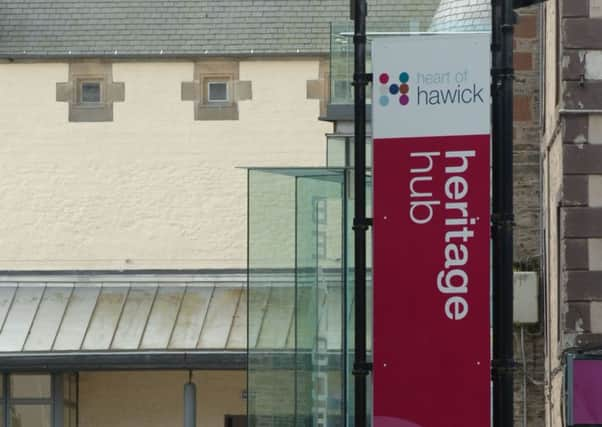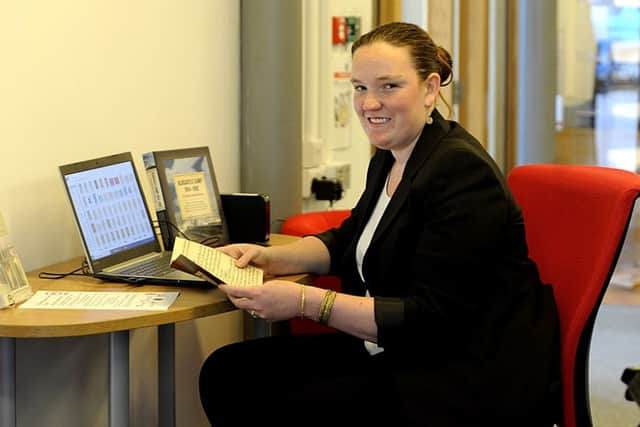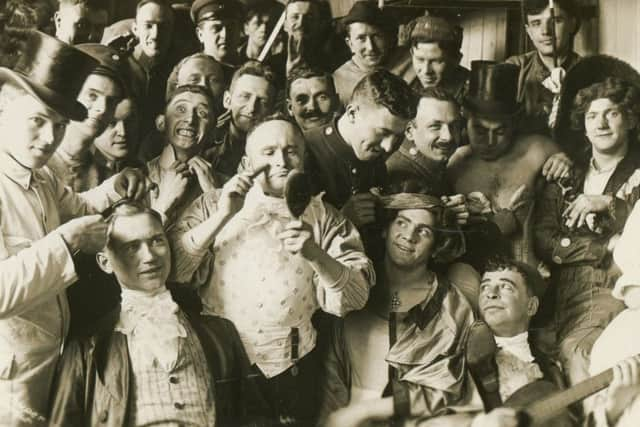Hawick research centre will be first of its kind in UK


On Saturday, November 3, the UK’s first internment Research Centre is being launched at Hawick’s heritage hub.
The event will establish the town as the place to go for anyone across the world wanting to research their own family’s genealogy and for scholars seeking more information on the 68 prisoner-of-war camps spread across the British Commonwealth during the First World War, including Stobs Camp, near Hawick.


Advertisement
Hide AdAdvertisement
Hide AdThe ambitious project has been made possible by input from Archaeology Scotland and Stefan Manz, a professor at Aston University in Birmingham.
Next month’s launch is attracting scholars from across the UK and Europe, and opening the event will be Jens-Peter Voss, German consul for Edinburgh.
Hannah Bell, digital archivist for the Stobs Camp Project, said: “We’re hoping it will bring in people from all over the world, whether it be people who are tracing their own ancestry or scholars researching internment itself.
“It will have quite an impact on the town and boost tourism.”


Advertisement
Hide AdAdvertisement
Hide AdIn addition to books and artefacts, the research centre, to occupy a designated space within the hub, will include information in digital form.
Taking Stobs Camp as a starting point, the centre will be the only one in Britain to study past and present internment throughout the British Empire, including camps in Africa, the Mediterranean, India, Australia, New Zealand, Canada and the Caribbean.
Various international scholars will give presentations on life behind the wire during the First World War at the launch, and there will also be displays of artefacts, collections, books, and translations of the Stobs Camp newspaper and internee letters into English to see.
Hannah said: “It’s going to be an access point located within the heritage hub, so we’re going to have a collection of books here which have been published on the various camps.
Advertisement
Hide AdAdvertisement
Hide Ad“There are 68 camps in total. Obviously, not all will be covered, but we will have a lot of information on them.
“We also have the Stobs Camp archives here, and that will be part of the research centre as well.
“What it aims to do is show internment in a local and global context, so it will present information on what the home front experience would have been, military history, the experience of minorities during wartime and family history.”
Hannah said that creating the research centre had proved a real eye-opener.
Advertisement
Hide AdAdvertisement
Hide AdShe said: “When I first approached this, I had a very narrow view of what internment was like during the First World War, and looking at Stobs and the various other camps really changed what I thought internment was.
“I thought it was a very confined – marches and doing things by certain times – but we have performances that the prisoners put on, plays that they did, concerts that they hosted.
“There were choirs, a drama group within the camp, a sports committee, so it was almost like its own community.
“We have a diary of a woman who used to live near Stobs and she actually talks about a prisoner who died and was buried at the First World War cemetery at Stobs, which has been restored and will be unveiled on November 11.
Advertisement
Hide AdAdvertisement
Hide Ad“In her diary, this woman talks about one of the fathers of the boys buried there coming back year after year from Germany and actually staying with the family near Stobs every year on the anniversary of his son’s death.”
Following the launch, from 9am to 2pm, there will be the opening, at 2pm, of the refurbished war memorial room in Hawick Museum and an exhibition called Behind the Wire: Civilian Internment in the British Empire 1914-1919.
The event is free, but booking is required.
For further details, contact [email protected] or phone 01450 360699.